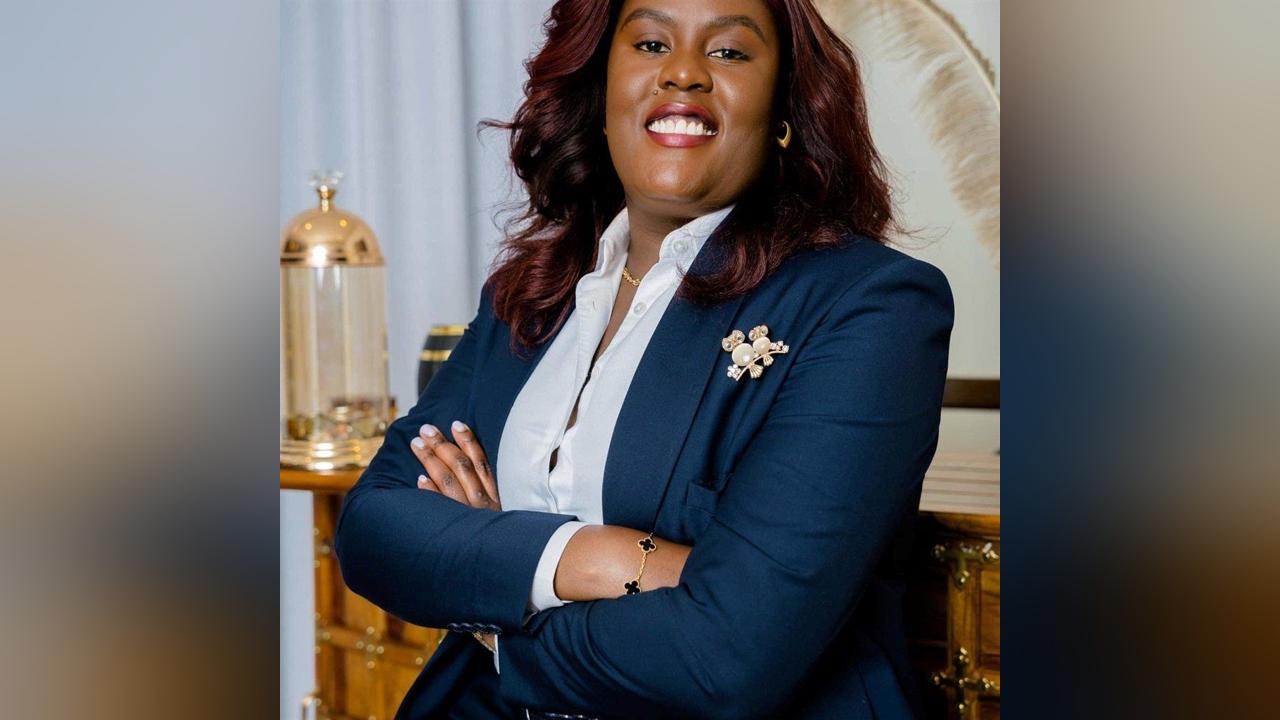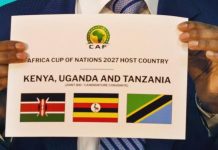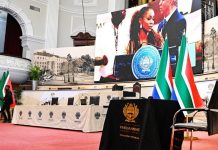Africa-Press – South-Africa. When Raila Odinga’s wife, Ida, was pregnant with their last born 33 years ago, the couple made a deal that if it was a boy he would be named Nelson, and a girl would be Winnie.
It was not the first time the couple would name a child after world political figures.
Their first child Fidel, who died in 2015, was named after Cuba’s late long-time communist leader Fidel Castro.
Fidel was born when Odinga had just returned from communist East Germany at the height of the Cold War.
After Fidel came Rosemary (1977) then Rila junior (1979) and lastly in 1990, the child who had two potential names was born and named Winnie after the late former wife of South Africa’s struggle icon Nelson Mandela.
She said:
Her father admired the Mandelas for their struggle credentials.
Odinga, like Mandela, had been a political detainee although for a shorter period.
“Our families went through a similar story. Both led the fight against oppressors and both fathers were imprisoned, Mandela for 27 years, and Odinga for 8.5 years,” she said.
Odinga was arrested for his alleged role in the failed attempt to overthrow Daniel Arap Moi in 1982.
He was released in 1988 but imprisoned for another year.
Winnie styles herself as Rila’s “student” in a family with a long history of political gladiators.
“Well by the nature of politics, I believe everyone in the family is in politics whether they like it or not.
“We have all collectively felt the joys and pains of the political struggle. My paternal grandmother supported the freedom fighters.
“Many have served in various local government. However, even the timidest of us all would probably win any geopolitical debate in the local bar,” she said.
Tracing the Odingas’ history will take one to at least eight countries in East and Central Africa. Perhaps that is why Winnie feels attached to more than one country.
“We are from the Luo tribe, a Nilotic group [from the Nile region] that’s found in Uganda, Chad, Central African Republic, Nigeria, DRC, Ethiopia, Tanzania, and South Sudan.
“We’ve traced our particular family history back to King Jok I from Bahr el ghazal in South Sudan,” she said.
Winnie became more prominent in the past two years as her father set plans in motion to challenge for the Kenyan presidency for a record fifth time.
Under the Azimio la Umoja–One Kenya Coalition Party, she became her father’s personal assistant and the two grew closer.
“We travelled the world together, became very close, and began to understand one another. He’s taught me more than any school I have been to, and I like to think I’ve taught him some things too,” she said.
Unfortunately for the Odingas it was the same old script – Rila lost to William Ruto who had served as Uhuru Kenyatta’s deputy.
It could have been the ultimate prize and Winnie believes democracy in Africa is just not there.
“My view on all African elections is that we’ve desperately lost our way and failed previous generations.
“They worked so hard for our nations to be independent but there seems to be an entrance of neo-colonialism through the ballot; where elections become nothing more than rituals, the will of the people is suppressed, and the winner is decided beyond our shores.
“The system of recourse is designed in a way to pacify the masses and eventually you must just get on with it,” she added.
The state of affairs in African politics just will not escape her mind without adding more.
“It’s hard to comment on something that doesn’t exist [democracy]. I believe that we got it all wrong from the start.
“Our African political history is a palaver. Our ancestors would sit under a tree, discuss the issues of the day, agree, and go on without animosity. Nobody would feel that ‘my man must win or I will die’.
“There was no rigging, post-election violence, blatant corruption, gerrymandering, and so on.
“I believe that it’s time for the birth of a reimagined political ordinance in Africa. One that acknowledges our cultural diversities, accepts divergence, and works for the people. We are going nowhere,” she said.
Winnie’s grandfather, Jaramogi Oginga Odinga, was a prominent figure in the independence struggle.
He would later serve as Kenya’s first vice-president, and thereafter as opposition leader.
But because of differences with the country’s founding president, Jomo Kenyatta, who was pro-West while Odinga was communist, the two became rivals.
That blend of politics did not work anymore, according to Winnie.
She said:
Her father and Uhuru Kenyatta closed ranks and the latter supported Rila’s quest for the presidency last year in what some criticised as “dynasty politics”.
While Winnie is seen as the likely political successor to her father, Ruto also has a daughter, Charlene Ruto, who is also keen on politics.
Their paths have already crossed.
Last week, they were the key speakers at the Kenya Model United Nations 22nd Forum where they addressed issues affecting women.
Winnie does not see this as a challenge or another duel of dynasties.
“I don’t see it as a challenge because it must not be one. We have to change our thinking as Africans. Political power is not the goal. Those of us who are privileged to even have fathers need to work together to offer our brothers and sisters dignified lives. That is the goal,” she said.
She supports what she called the exposed African and intelligent African in a fast-paced world where the continent cannot forever play catch up.
“I would like the world to know that as young people of Africa, we are restless and getting more impatient. We are a new generation of Africans, either third, fourth, fifth born after the independence of African nations.
“There exists a generation, both rural and urban, who through online sources, have witnessed the astronomic rise of their peers around the globe.
“We know we can do it too if we only had access to cheap and affordable information technology,” she said.
Winnie is a member of the East African Legislative Assembly the legislature of the East African Community.
At the regional assembly, she is at the forefront of promoting a digital economy in which there is a shift of mindsets.
“Generation X and Y saw life before the internet and were at the right age to learn it. We are a transitional generation from ‘old’ Africa to the new. This is not about age, but about thinking, attitude towards work, and life.
“Young Africans have moved on from the dream of building manufacturing industries and leap-frogged into the digital age.
“The truth is, the digital world is not only a real place for all of us, it is the only place for many of us. It is where we learn, socialise, display, transact, create, and grow. If Africa does not get into tech now, we not only risk stagnation but isolation from the world,” she said.
For More News And Analysis About South-Africa Follow Africa-Press






